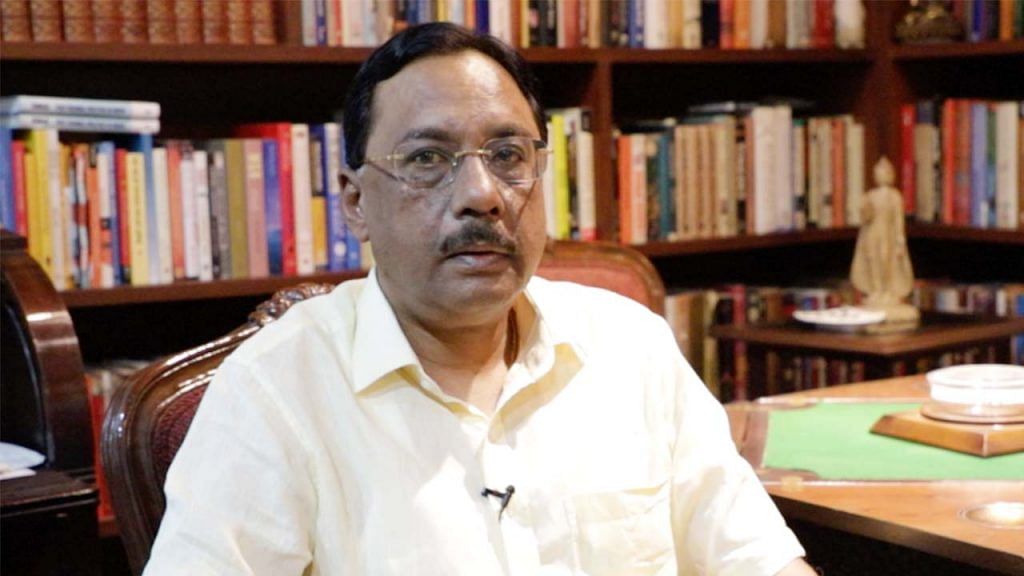Unfortunately, the elite of Lutyens’ Delhi continue to live in cloistered enclaves. Their defining coordinates are, English, English and English.
India is changing. And I am not making any critical comment on the so-called Lutyens’ elite, which has people of great talent and eminence, who are well-intentioned, and who also do their homework and do so for the good of the country. I don’t want to make a damning indictment.
But essentially, what did happen after 1947? You and I need to introspect on it, as I have in my book called Becoming Indian: The Unfinished Revolution of Culture and Identity.
What has happened is, that in spite of a mass-based freedom movement, the real inheritors of power after 1947 were a small group of people who spoke English with the right fluency and the right accent, had the right social background, and who, in the initial decades, came to power and ruled the roost.
Frankly, as a result of democracy and the empowerment of the rest of India, they have become, in many ways, marooned islands. For some of these people, it’s a kind of rootless cosmopolitanism, which is adrift from our cultural roots, a knowledge of our history, tradition, folklore etc. I believe they’ll continue to be judged only by either their social background, or the accent in which they speak English. They are marooned now; there is another India.
When I gave the examination for the Indian Foreign Service (in 1976), you could only write it in English. Now, people can give the exam in any of the recognised Indian languages. That, in itself, is empowering.
This is not the first time that a leader like Narendra Modi has become the Prime Minister of this country. We have Mr Deve Gowda — he did not belong to the Lutyens’ elite, while Mr I.K. Gujral perhaps did. We had Mr Narasimha Rao. In a sense, Mr Atal Bihari Vajpayee, whose poems I had the great privilege to translate on his request, also represented — in a far more credible and authentic manner — an idiom that was not of Lutyens’ Delhi, but of mainstream India. Where Hindi, or whatever language you speak among India’s great languages, is represented far more than the small elite whose primary defining coordinates are English, English and English.
((I think that each Prime Minister or any focus of power — and I have worked in both the President’s and the Prime Minister’s Office — will have the first circle of advisers who are the closest to that source of power. This happened in the ‘old’ Lutyens’ Delhi — you had a situation where there was a perception that Kashmiris seemed to be closer to power than others (the Indira Gandhi regime). And now, you may have a similar perception about officers from Gujarat, with whom the PM has worked earlier. It is to do with the nature of power: Wherever there is a strong focus of power, there will be people who are around that focus, who are closer to that person than somebody else. You will see this across the world, not in India alone.))
There was a small elite that took many of its entitlements for granted. Those entitlements are not only being questioned — you can see that geographically in Delhi, East Delhi has more money than New Delhi. West Delhi, South and south of South Delhi, the whole of Gurgaon… Where is Lutyens’ Delhi? There is a new class which has come up.
Earlier, there were clubs where only a few people went in. Now, even if you can’t get admission into those clubs, people have formed their own clubs, which are even posher sometimes.
I celebrate the fact that a country of this size and diversity has far more empowered people claiming to be part of the great upward mobility spiral of an evolving India. And why not?
What is unfortunate is the elite of Lutyens’ Delhi continue to live in cloistered frontiers or enclaves, with the same concerns, which are no longer valid for a new India. They are still relying largely on an old boys’ network of the past, on the manner in which they speak English, on very rudimentary knowledge of their own culture — not in a xenophobic way, but in terms of having some knowledge of what your cultural roots are.
—As told to Editor, National and Strategic Affairs Jyoti Malhotra. Watch the conversation here
